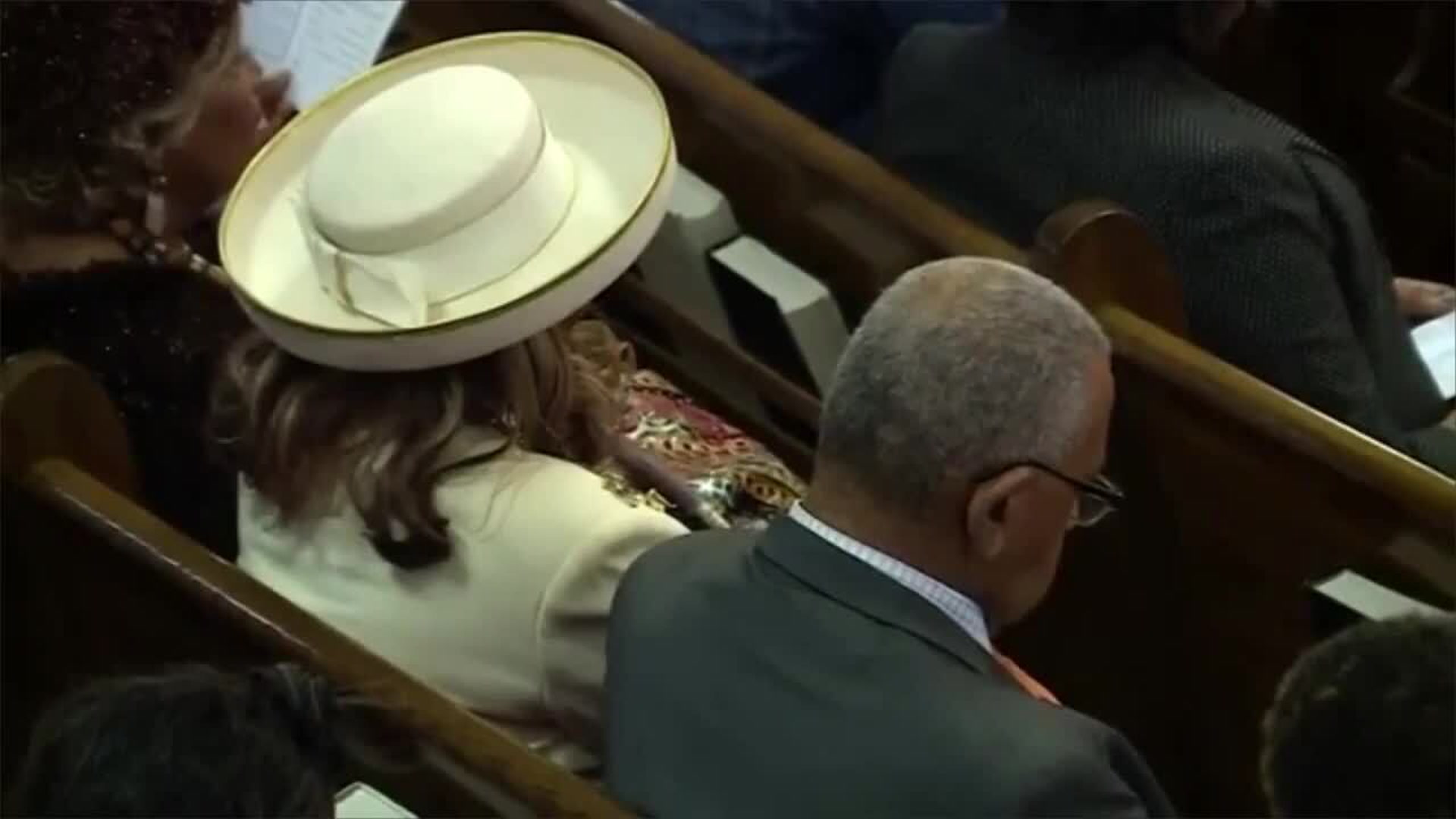I sit in the basement of Birmingham's Sixteenth Street Baptist Church as Micah 6:8 resounds from a pair of speakers at the front of the worship room.
"What does the Lord require of you," says a church member at the upstairs pulpit, "but to do justly, and to love mercy, and to walk humbly with God?"
Across the crowded room, the word "Amen" pops up all over in affirmation--from men and women, old and young, black and white.
We watch the Sunday service in anticipation of hearing the farewell speech of Attorney General Loretta Lynch, the country's first African-American woman to hold that title. We sit in humble foldout chairs in the basement; the air is stuffy. Above us, the choir sings, "Pray on just a little while longer." Somewhere below us, surely, is the ground on which those four little girls died when the church was bombed by white supremacists in 1963.
We are literally captured between the strata of history--a past of terrors below, a present of progress above.
I have only come to Sixteenth Street once before--on June 26, 2015, the day the Supreme Court ruled in favor of marriage equality. As a young gay Southerner who calls Birmingham home, the news of this victory drew me to this hallowed ground. I stood just outside the steps and offered a rare prayer. Please, I asked, let this be enough. I hoped, perhaps naively, that with this victory, a new age of civil rights for LGBTs might rush in--just as a new age of civil rights for African Americans followed the abject terror visited on this church a generation ago.
Turns out, that prayer wasn't answered the way I hoped. On Friday, I will watch my country swear in one of its most divisive presidents in modern history, who has attracted a motley carnival of anti-queer and anti-black people to the most powerful offices in the land.
As Lynch takes the stage, I am hoping she can tell why I have come back here, in this dark hour--why I am drawn back to this place this time out of a sense of fear for the future, rather than victory.
"You've come here to work," she says to the crowd. She repeats that word--"work"--so often in her speech that the church congregation begins to say it for her.
The attorney general, herself a fellow Southerner, assures us that the only way to face the darkness ahead of us--the prejudice and abuse against Americans "for what they look like, where they worship, or whom they love"--is renewed, shared vigilance.
"The triumphs of the past must remain intact for the future," she says. "Every generation has to work to make them real."
She, the attorney general who fought this past year for my transgender brother and sisters, reminds us of Martin Luther King's dream.
"If we enter a period of darkness," she says, "that's when dreams are most made."
I'm sure Lynch will be missed for her work in the Justice Department, but I will miss her for many reasons that I will miss the Obama administration: the way in which the president and his chosen leaders can impart a seemingly boundless optimism and faith in action.
I stand up at the end of the service, ready to join hands with the congregants as the song "we shall overcome" begins above us.
What is this great work that waits for us Americans, I wonder. How will it start?
The answer comes clearly to me as we sing. Do justly. Love mercy. Walk humbly.
We untangle as the song ends, almost regretfully, and take the stairs up into the sunlight.
Watch a clip from Loretta Lynch's speech at the Sixteenth Street Baptist Church below:































